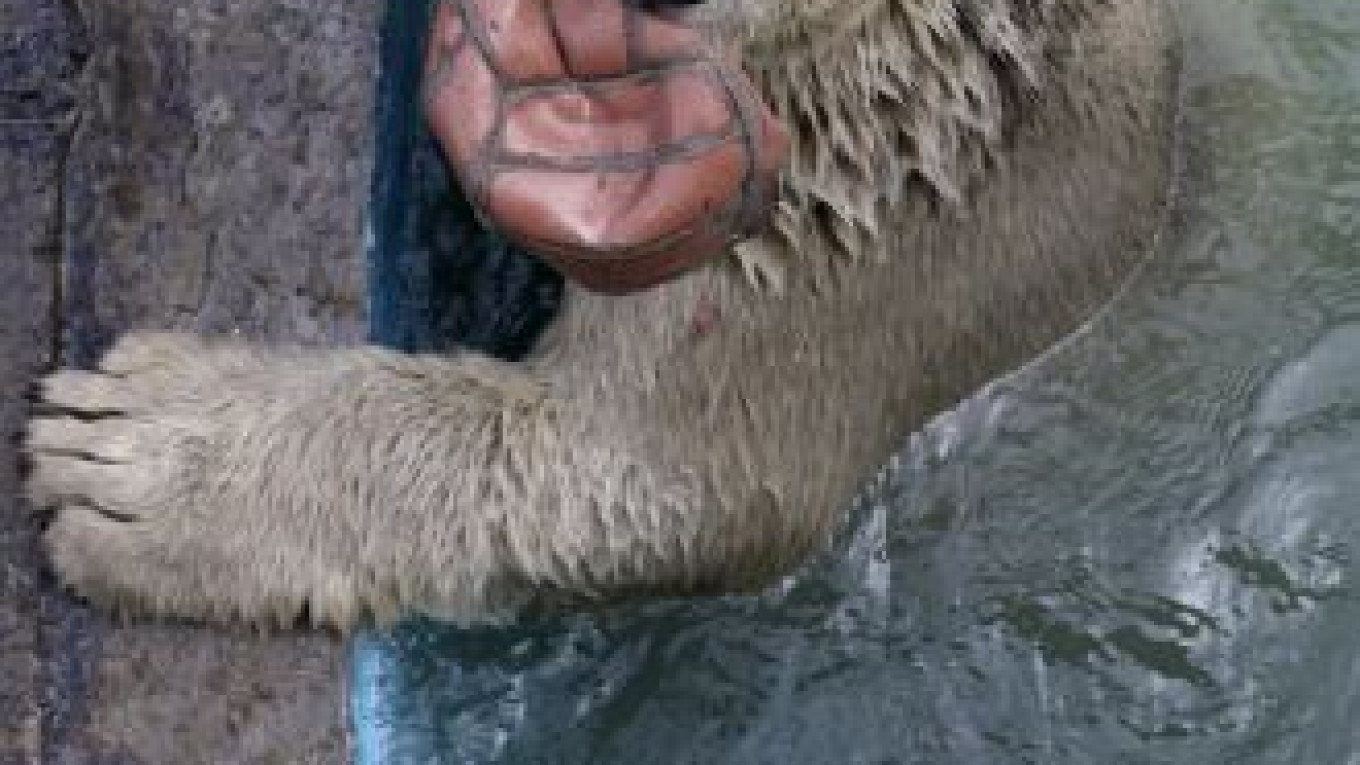A government decision not to lift the country's long-standing ban on hunting polar bears this year has more to do with a lack of mechanisms to reign in poaching than with preserving the endangered species, the World Wildlife Fund said Thursday.
A statement on Prime Minister Vladimir Putin's web site published earlier this week said the government has decided against using its quota of 29 animals, laid down in a joint agreement with the United States.
The U.S.-Russia Polar Bear Commission last year for the first time decided to allow a harvesting quota of 58 animals — split evenly between both countries — that may be hunted by natives for traditional and cultural purposes.
The shared polar bear population straddling the Bering Strait numbers some 2,000 animals, according to the commission's data.
Vladimir Krever, a wildlife preservation expert with the World Wildlife Fund's Moscow office, said the decision not to use the quota was probably made because authorities could not meet the conditions set in the treaty with the United States.
"They must have monitoring and enforcement systems in place in Chukotka, but currently there are no mechanisms to control the catch," he said by telephone.
Krever said probably 30 animals are being killed illegally in Chukotka each year. He added that the hunting quota was originally introduced in a bid to curb rampant poaching.
Putin's statement did not give an explanation for why the quota will not be used. The prime minister has championed protection and research of the polar bear, which also serves as the mascot of United Russia, the country's ruling party, which he heads.
A Message from The Moscow Times:
Dear readers,
We are facing unprecedented challenges. Russia's Prosecutor General's Office has designated The Moscow Times as an "undesirable" organization, criminalizing our work and putting our staff at risk of prosecution. This follows our earlier unjust labeling as a "foreign agent."
These actions are direct attempts to silence independent journalism in Russia. The authorities claim our work "discredits the decisions of the Russian leadership." We see things differently: we strive to provide accurate, unbiased reporting on Russia.
We, the journalists of The Moscow Times, refuse to be silenced. But to continue our work, we need your help.
Your support, no matter how small, makes a world of difference. If you can, please support us monthly starting from just $2. It's quick to set up, and every contribution makes a significant impact.
By supporting The Moscow Times, you're defending open, independent journalism in the face of repression. Thank you for standing with us.
Remind me later.


